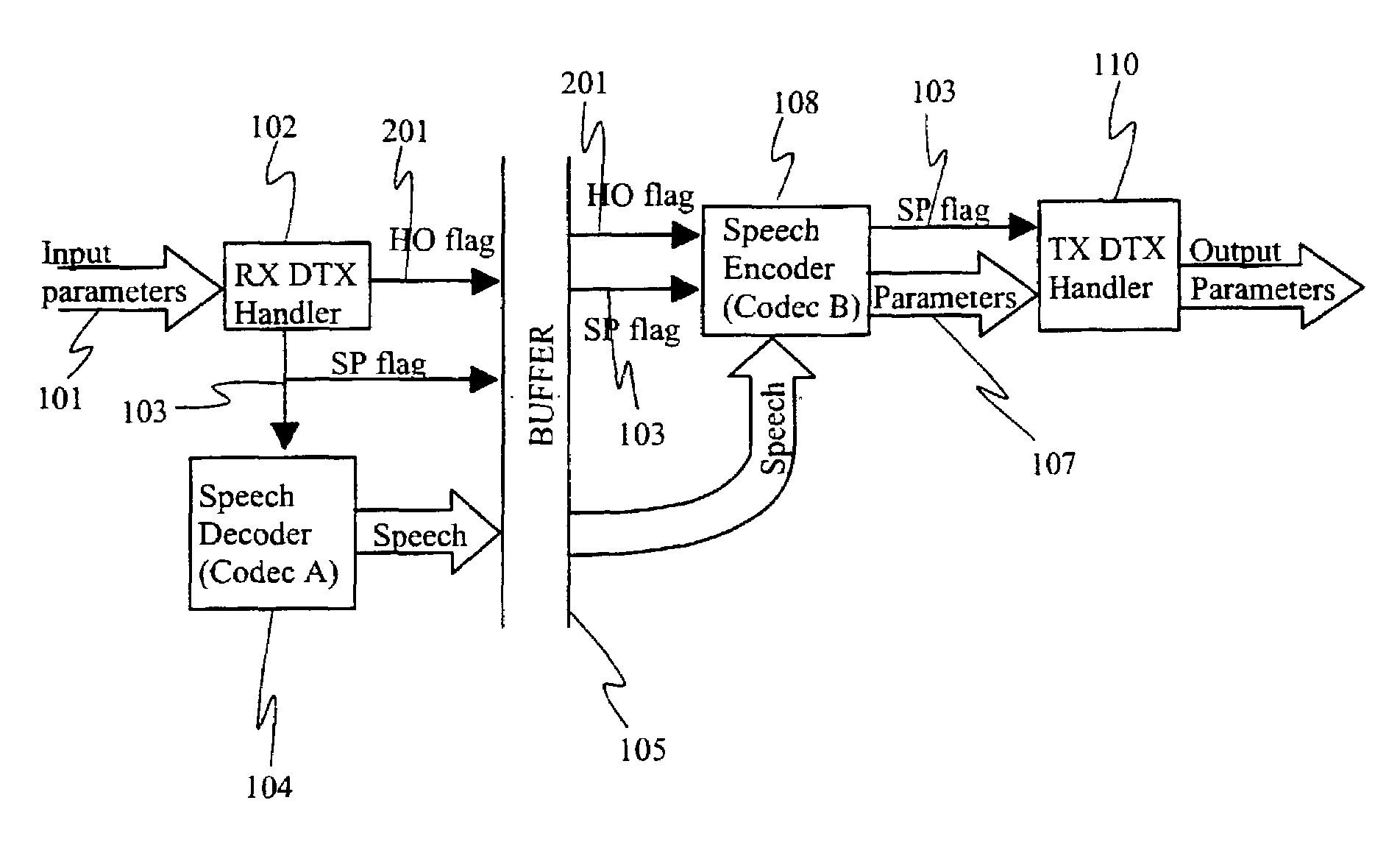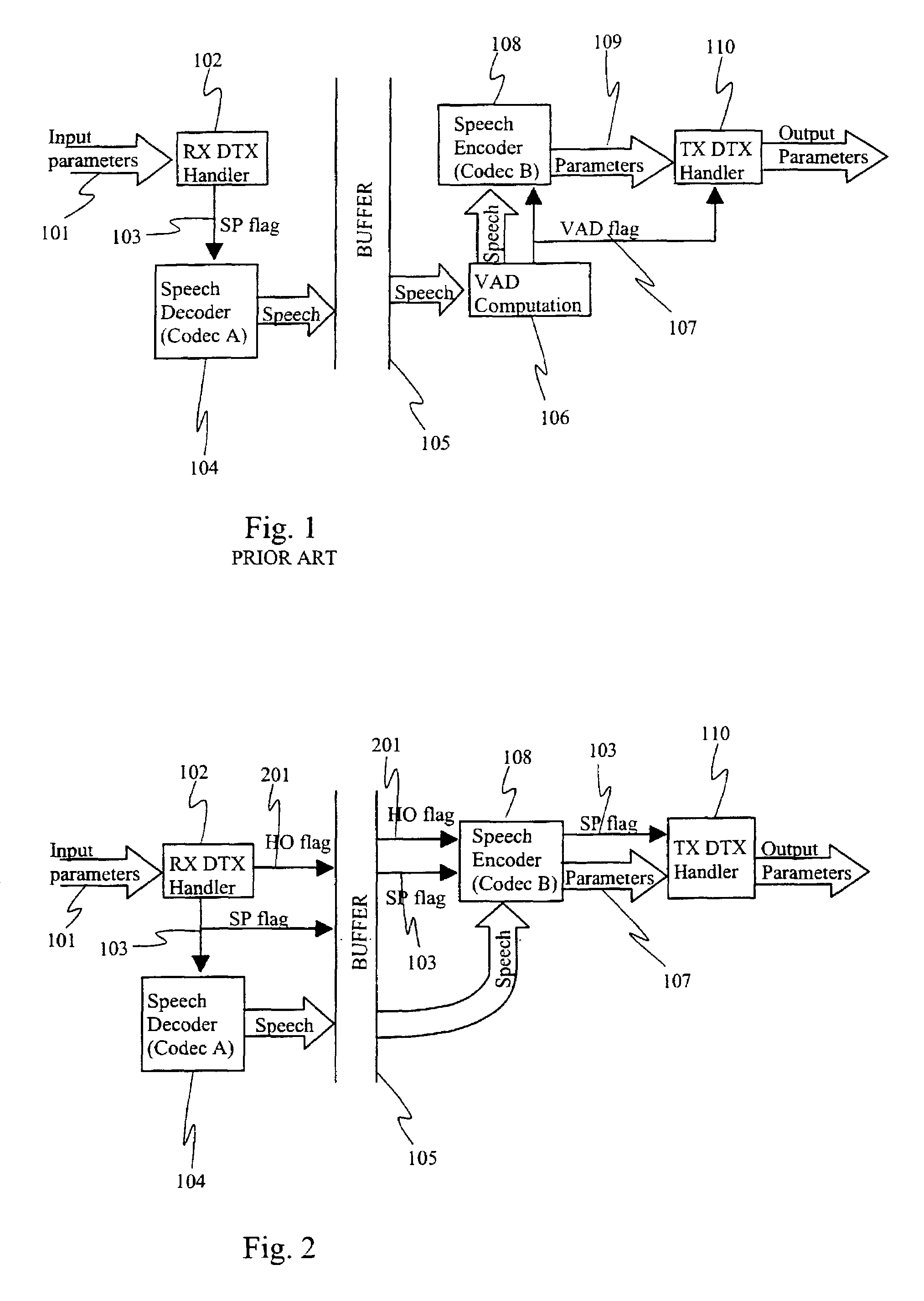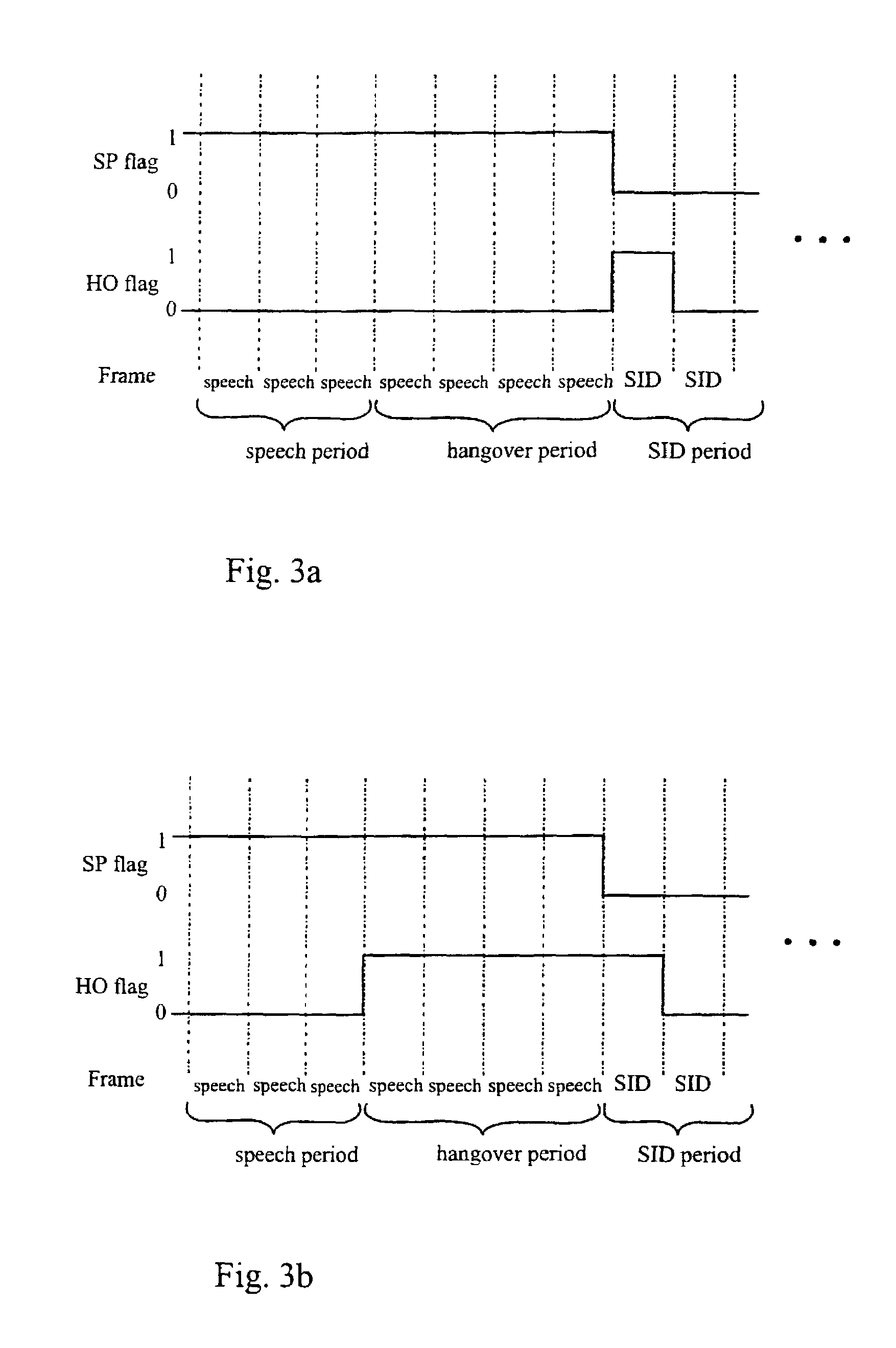Method for decreasing the processing capacity required by speech encoding and a network element
- Summary
- Abstract
- Description
- Claims
- Application Information
AI Technical Summary
Benefits of technology
Problems solved by technology
Method used
Image
Examples
Embodiment Construction
[0035]In the figures, the same reference numbers and markings are used for corresponding parts. FIG. 1 was discussed above in connection with the description of the prior art.
[0036]FIG. 2 shows a preferred embodiment of a transcoder according to the invention. The transcoder receives as its input the parameters 101 formed of the speech signal at the transmitting end. The reception block 102 of the transcoder processes the received data and forms an SP flag 103 thereof. The SP flag 103 indicates whether the received frame contains speech data or comfort noise. Here speech data is thus either an actual speech signal or background noise. For example, when the value of the SP flag 103 is 1, the frame contains speech data or background noise, and when the value of the SP flag 103 is 0, the frame contains comfort noise. A frame containing comfort noise is called a SID frame here according to the above description. In addition to the SP flag 103, the reception block 102 determines the HO f...
PUM
 Login to View More
Login to View More Abstract
Description
Claims
Application Information
 Login to View More
Login to View More - R&D
- Intellectual Property
- Life Sciences
- Materials
- Tech Scout
- Unparalleled Data Quality
- Higher Quality Content
- 60% Fewer Hallucinations
Browse by: Latest US Patents, China's latest patents, Technical Efficacy Thesaurus, Application Domain, Technology Topic, Popular Technical Reports.
© 2025 PatSnap. All rights reserved.Legal|Privacy policy|Modern Slavery Act Transparency Statement|Sitemap|About US| Contact US: help@patsnap.com



